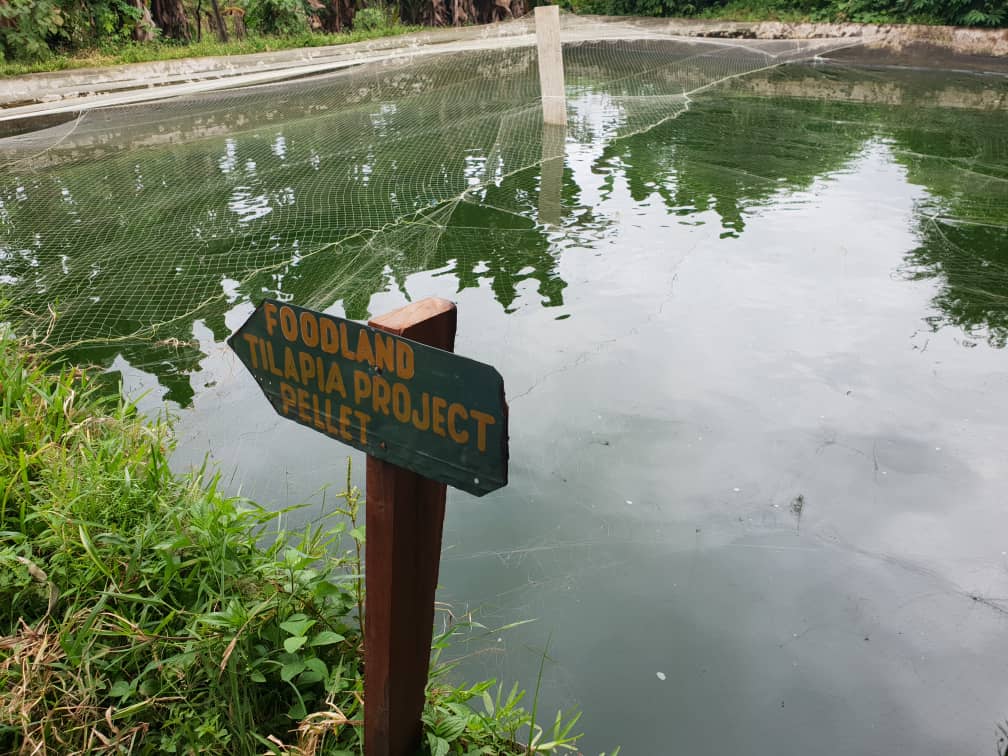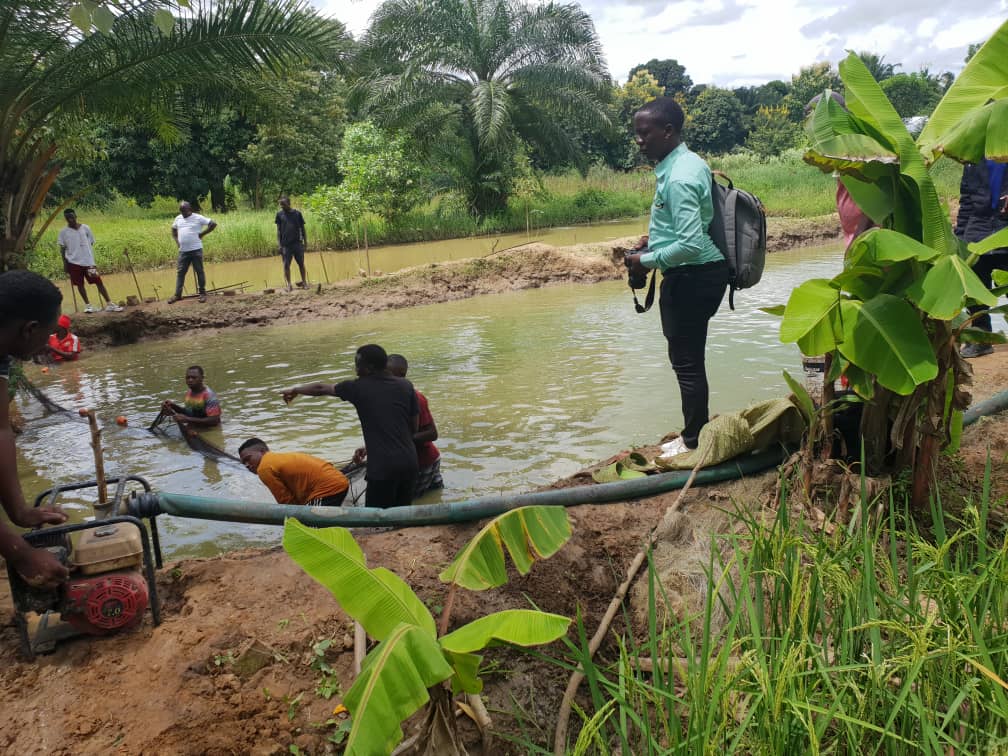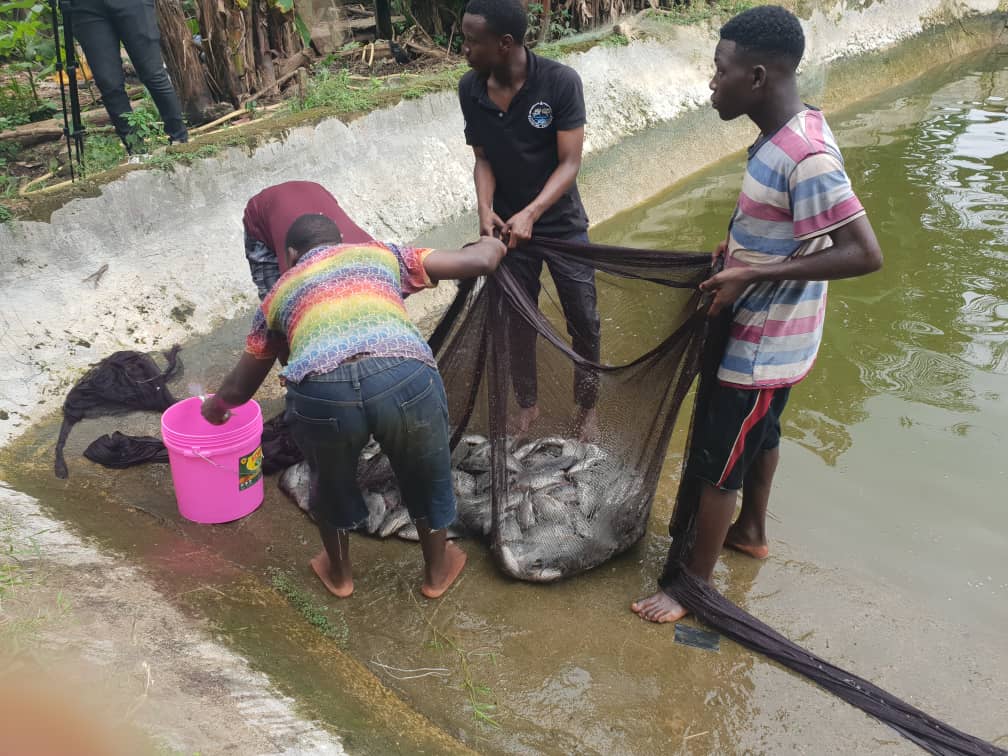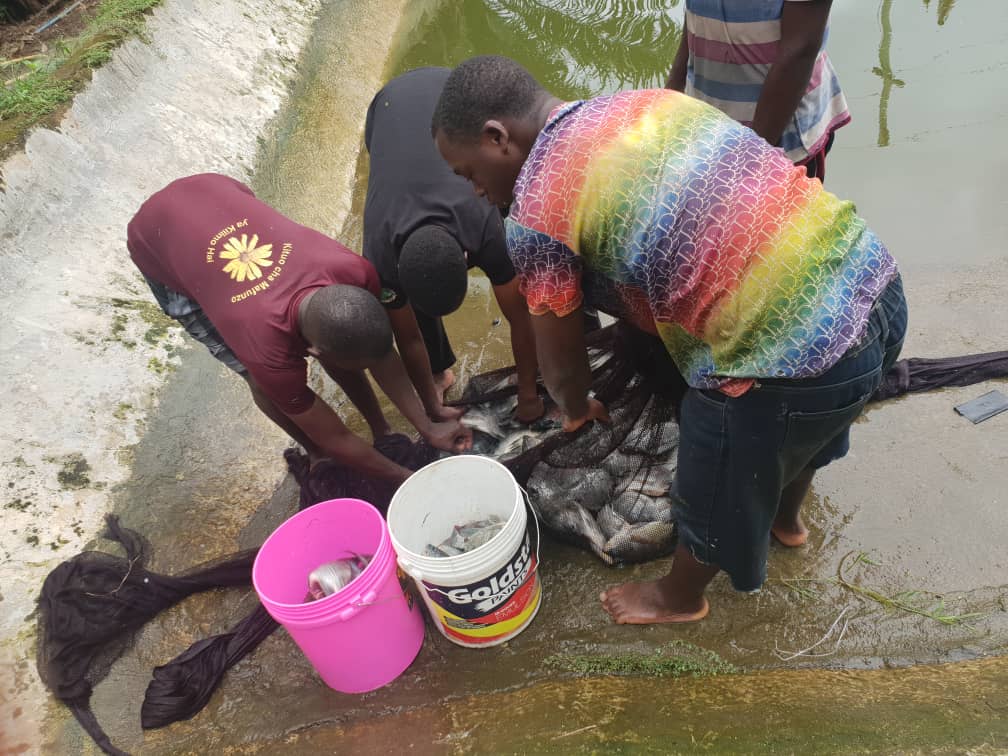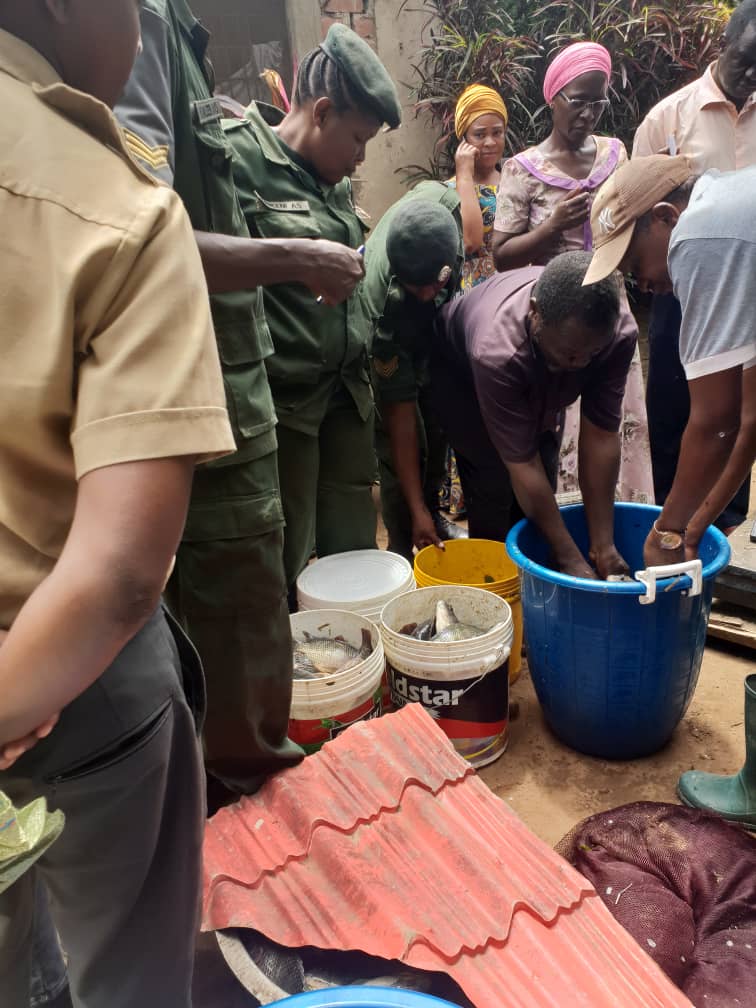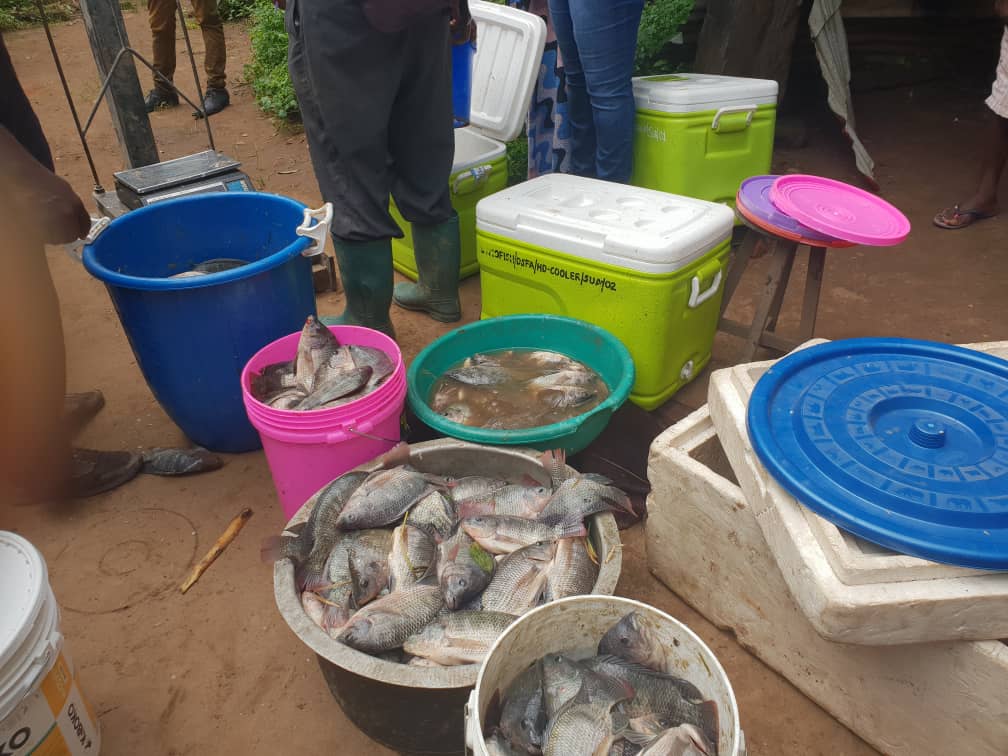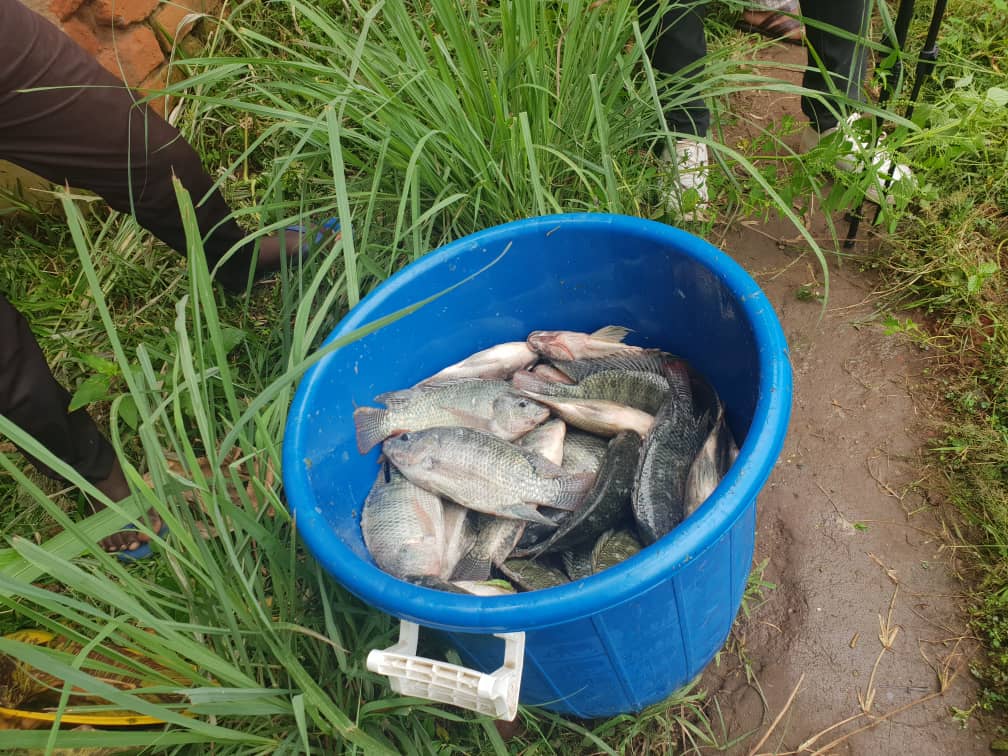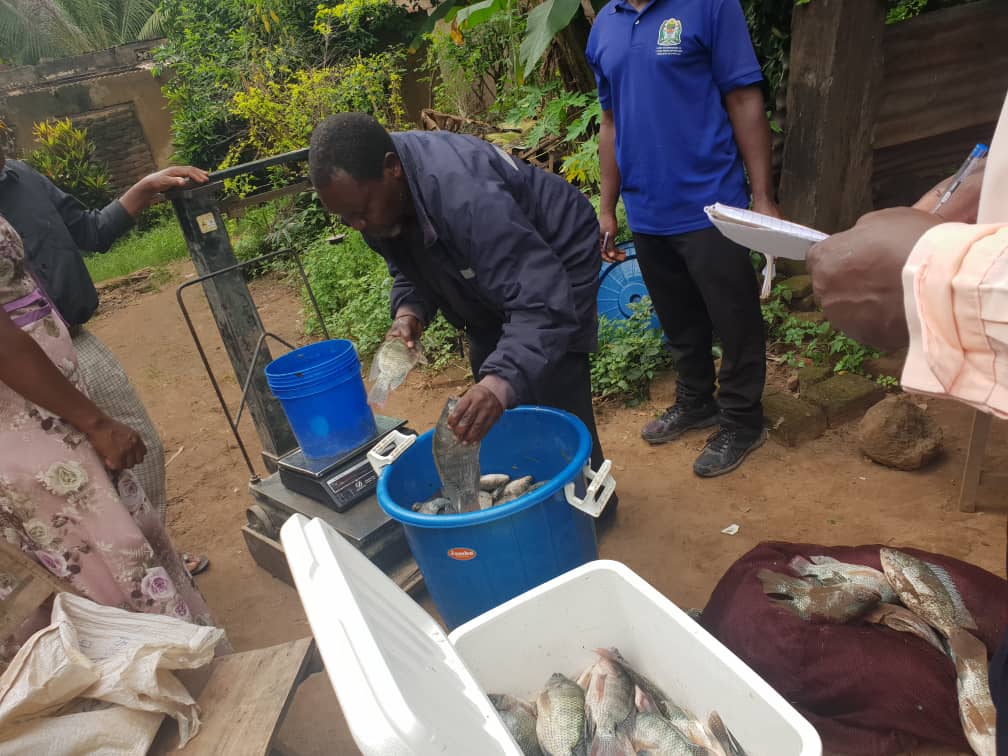FoodLAND promotes fish farming in Kilombero district – Morogoro Region, Tanzania
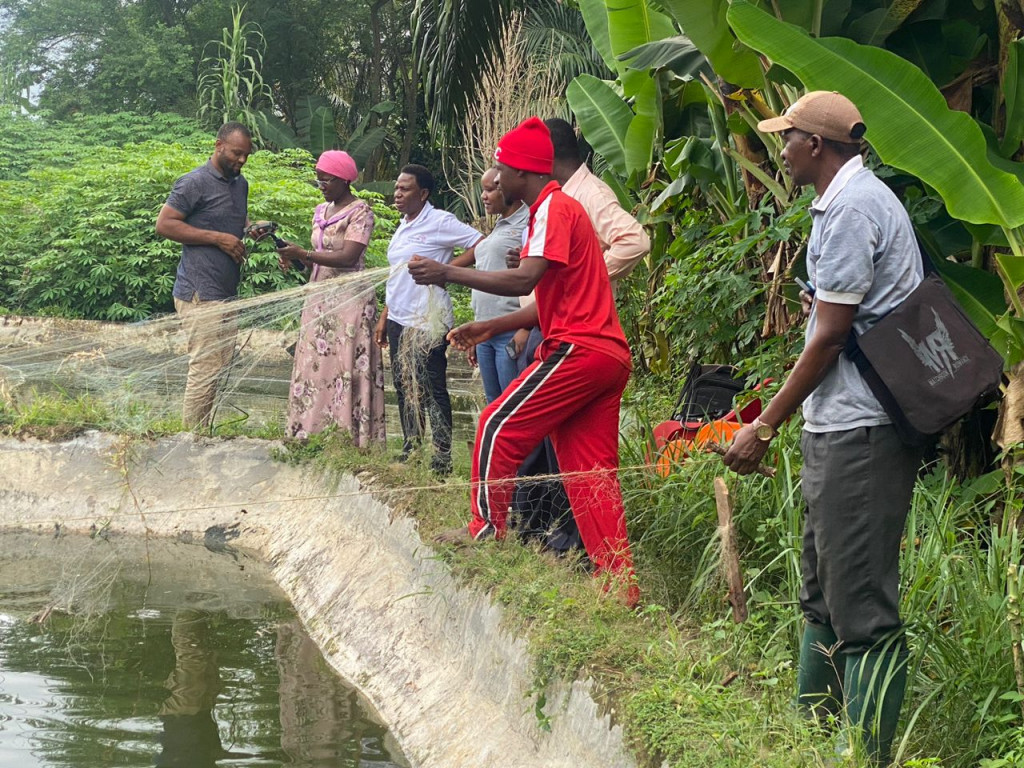
In order to ensure that the health of Tanzanians improves by eating a variety of foods, including fish, which is one of the most important foods with protein, the FoodLAND partner Sokoine University of Agriculture (SUA) has made awareness to citizens in Kilombero district in the region Morogoro can breed fish.
The FoodLAND Project Coordinator in Tanzania Prof. S. Nchimbi Msolla stated that the studies done under the FoodLAND project show that people are eating a variety of foods but the consumption of protein-rich foods is very low for most Tanzanians, especially in rural areas, and that is why they have been motivating people to raise fish productively.
“We identified various farmers who were willing to raise fish that we identified first and we gave them various training including how to make fish ponds that meet the needs of fish farming. Those who were interested in raising fish built their own ponds at their own expense and what we did was to bring them fish fingerlings”, said Prof. Msolla.
Prof. Msolla said that the farmers, after being given fish fingerlings, were able to grow the fish for eight months, so the exercise that has been going on for now is to harvest the fish that have been raised professionally. The number of fish raised is large and of the desired quality and shape, which has helped the farmers bring in income and even use them as a foodstuff.
She added that the SUA researchers involved in the FoodLAND Project are very happy due to the fact that the goal of promoting fish farming “has come true and brought great motivation to other people to want to get involved in fish farming. It is our expectation that the fish farming education will spread in different areas in the country”, as they have already received requests from various people who need training so that they can do fish farming productively.
On her part, Dr Renalda Munubi from SUA has said that the practical training, called Aquaculture Field School (AFS), they gave to those farmers who have been able to raise fish and harvest them has enabled them to realize that they can not rely on fish from the rivers alone.
Festo Liguduliaka, a resident of Mshikamano Village, Mang’ula B District, Ifakara Council, Morogoro Region, who is a fish farmer, said the FoodLAND Project has enabled them to see positive results on the whole issue of fish farming where they tried many times to breed but without success. FoodLAND Project have made them realize that everything has its own order and if you follow the instructions from the experts, success will come by itself.
Watch the video published by the Sokoine University of Agriculture in this regard below (in Swahili)
